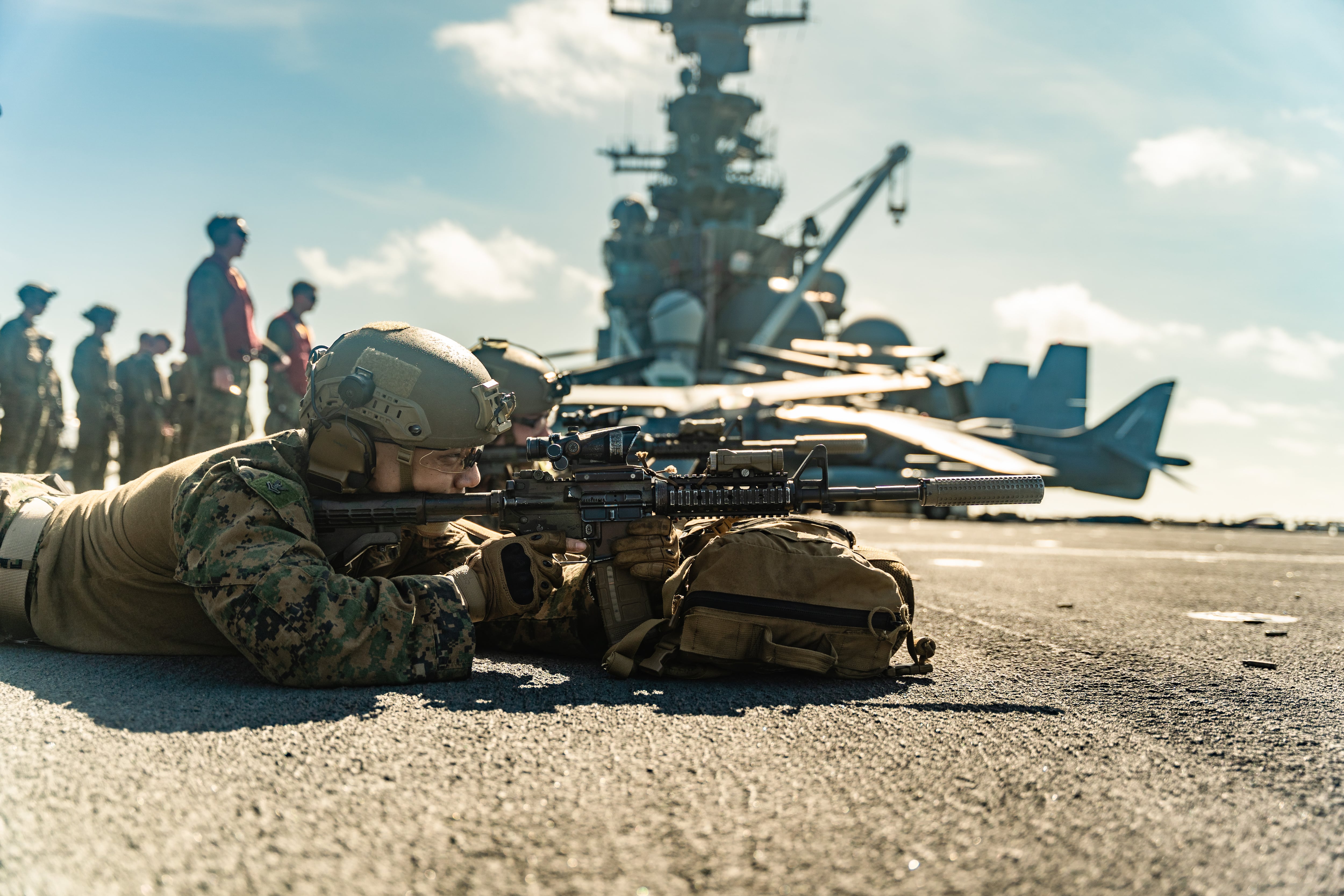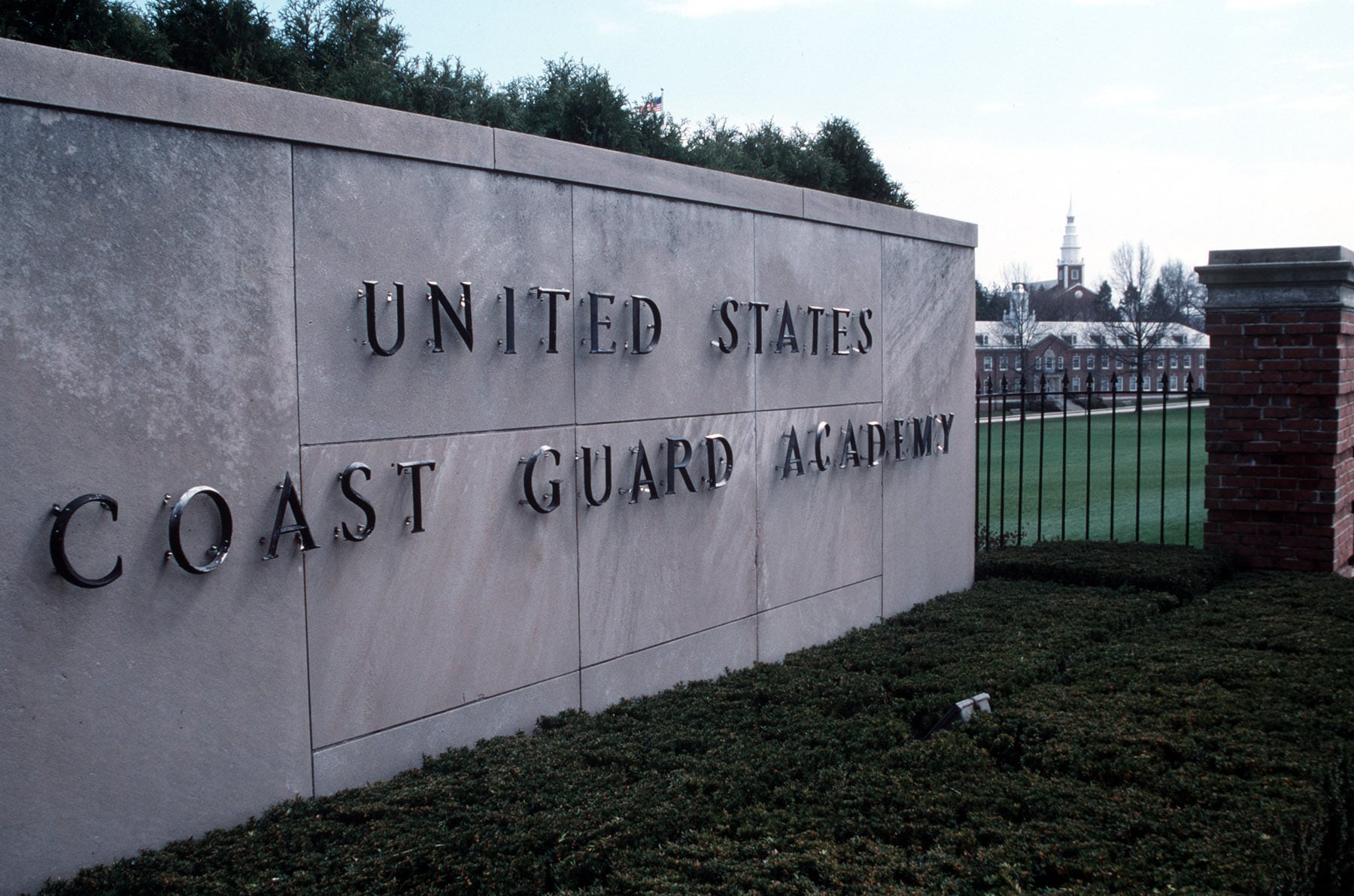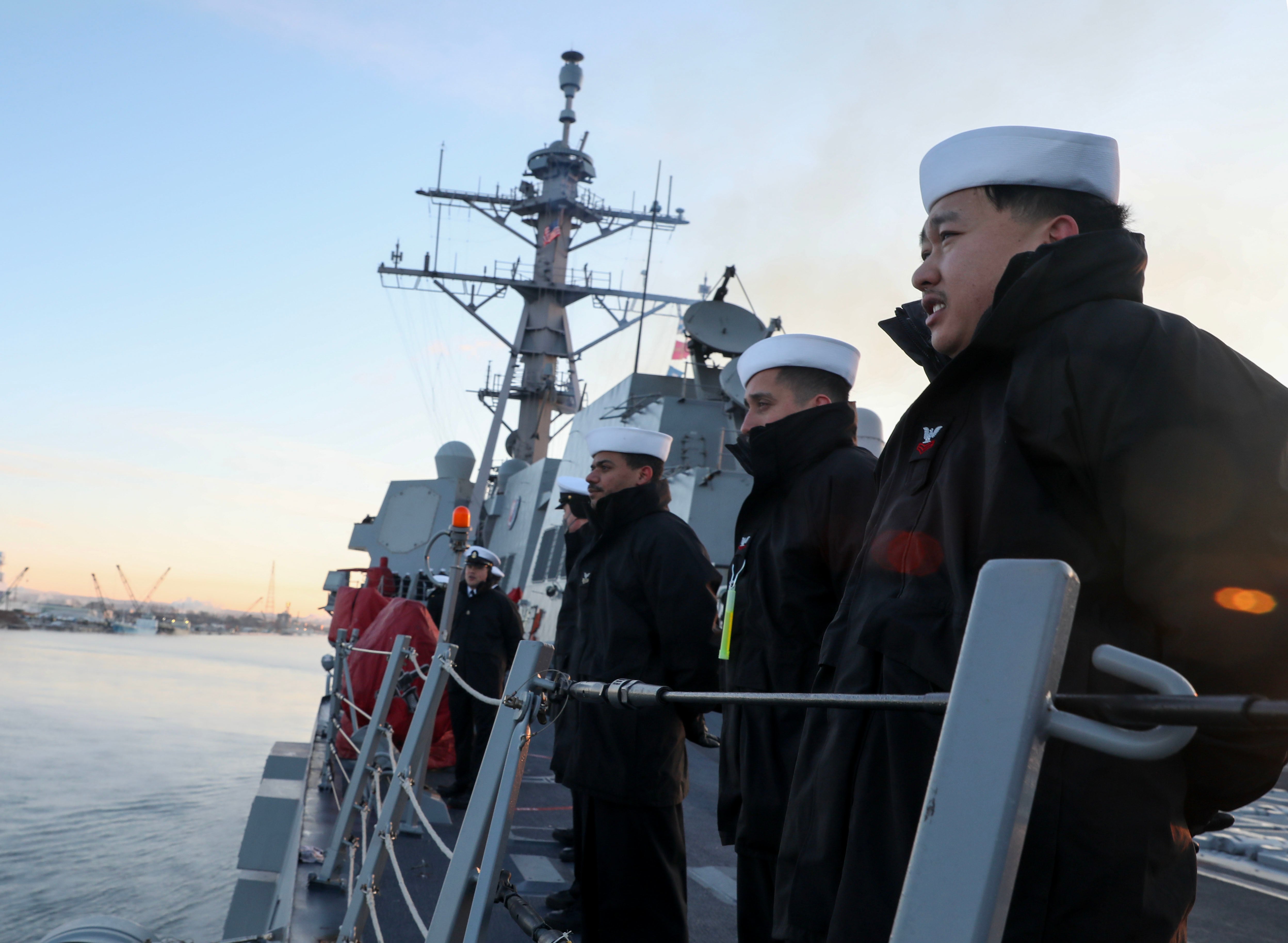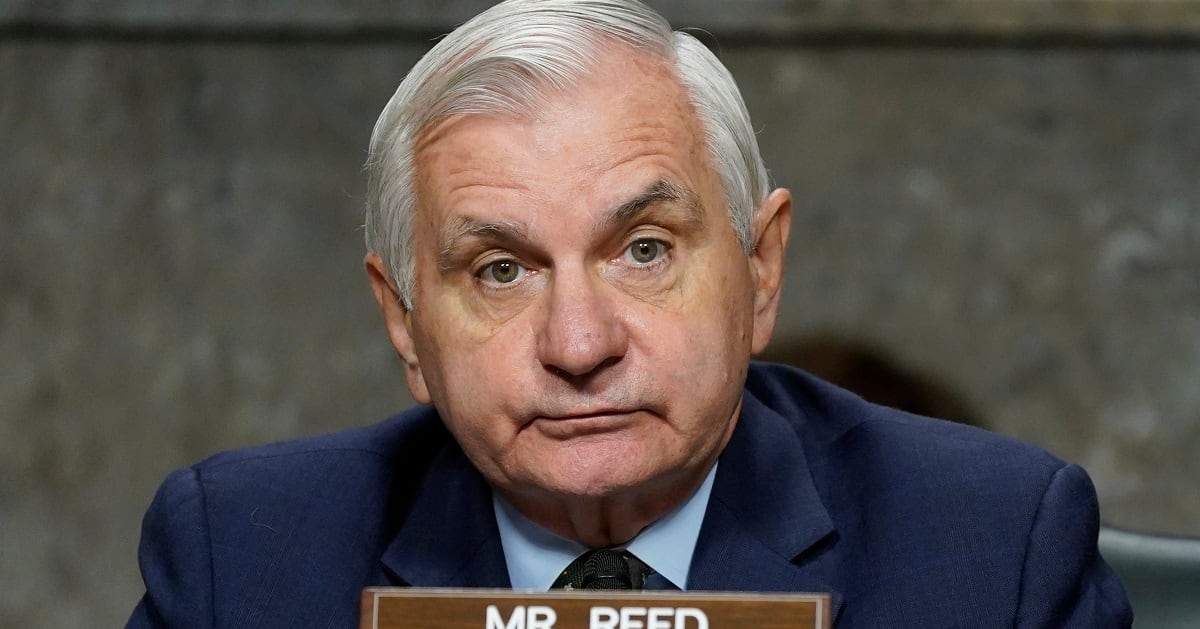The future of Veterans Affairs health care may not be in brick-and-mortar federal hospitals or private-sector clinics. A growing number of patients are headed into cyberspace instead.
VA officials have seen a dramatic growth in virtual reality pilot programs in the last year, adding 17 new pilot programs across 120 VA medical centers. Among them are programs where veterans don a headset to walk through a surgery ahead of the actual operation, or to travel to cyber campfires to chat with fellow veterans to de-stress, or even to go on virtual fishing trips with their peers to exercise their aging muscles.
Officials say the programs cover a wide range of clinical issues, including pain management, mental health care, physical therapy and social outreach. And they expect the offerings to grow even faster in coming years.
“We’re already talking to offices about how to hand these pilots over, making them a regular part of care,” said Dr. Anne Lord Bailey, lead of VA’s Immersive Programs at the department’s Office of Health Care Innovation. “The technology is already native to a lot of our younger veterans. And our older veterans have been open to it and fascinated by the possibilities. So, we’re ready to push this further.”
About 200 VA administrators and outside medical experts are gathered in Washington, D.C., this week, with another 200 joining online, for the annual VA Immersive Summit, showcasing how virtual reality can augment in-person care.
VA has only spent about $12 million on virtual tech in the last two years, against more than $200 billion in total Veterans Health Administration spending — but proponents say that could rise significantly in coming years.
“In five to 10 years, we will see immersive technology being as common in medical care as cell phones, tablets, and other personal devices,” Dr. Steve Lieberman, Deputy Under Secretary for Health at VA, told attendees at the conference. “It’s the new reality in healthcare.”
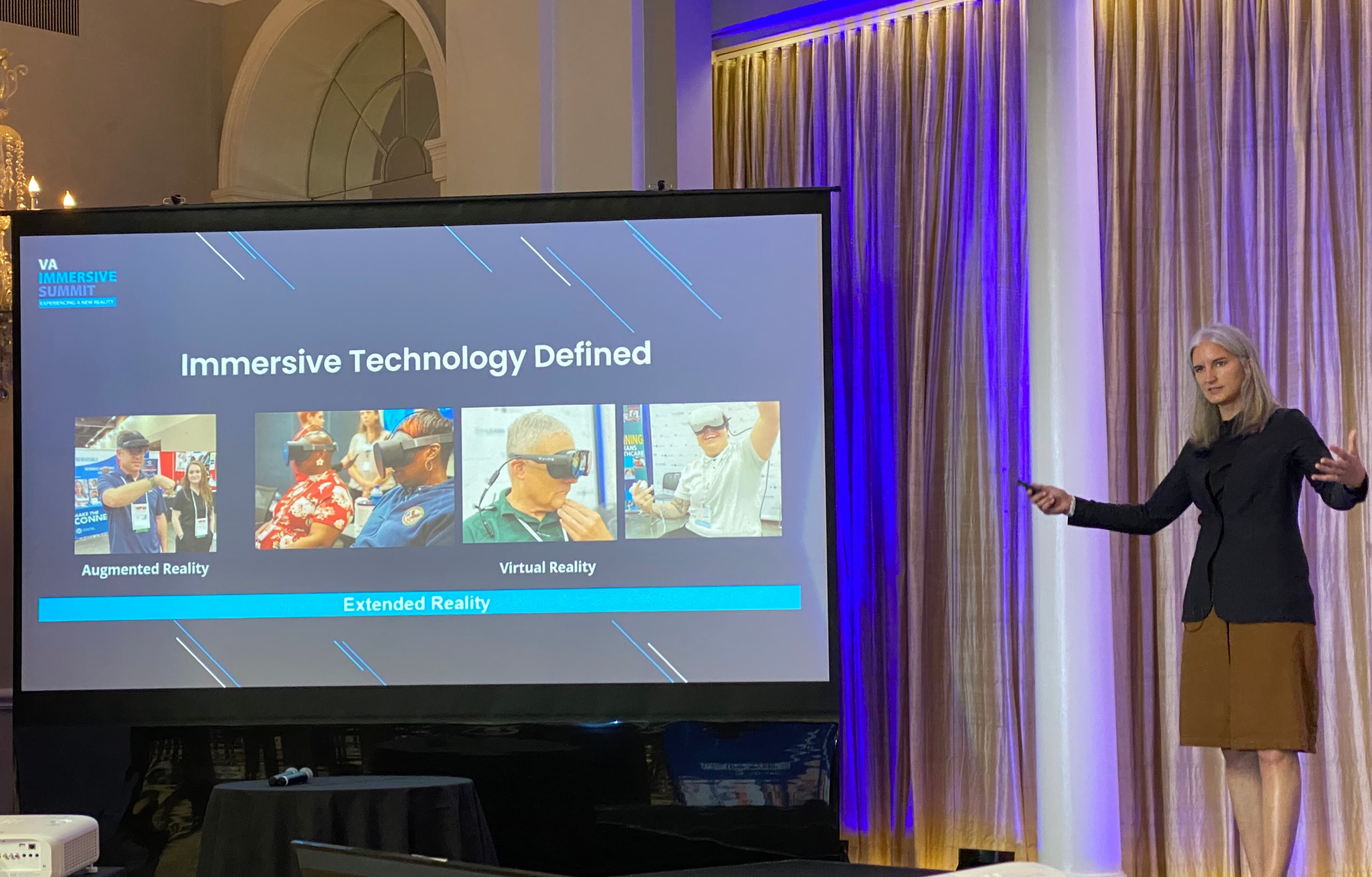
About 2,000 staffers and roughly as many veterans are currently using virtual reality headsets as part of their medical care regimen. For some, that means home-bound veterans connecting with friends thanks to virtual chat rooms. For patients with post-traumatic stress, it can mean using virtual headsets to re-live past horrors in a safe space, with guidance from medical professionals to work through their emotions.
One physician, featured in a video at the event, said a patient with multiple sclerosis was able to quadruple her grip strength over a year by playing virtual reality games online with other veterans.
“There is mental health therapy and physical therapy and occupational therapy you get through this technology,” said Grace Esposito, a Navy veteran who had been dealing with the after-effects of a military spinal injury for more than 30 years. “I just completed some neuro-balance therapy from home. This is an advanced future, and I hope more people get on board.”
In addition to running patient-focused pilot virtual reality programs, VA officials are developing staff training protocols as well. Those include teaching staff how to teach veterans to use gun locks for personal firearms. Instead of just reading instruction sheets, VA staffers can manipulate the locks in the virtual world, and then walk vets through the same process in person to ensure they understand the tools.
Bailey hopes demand will grow as more patients and staff understand how much they can accomplish in the virtual world.
“We’re already running multi-state pilots with a very small investment,” she said. “There is a huge opportunity for even more.”
Leo covers Congress, Veterans Affairs and the White House for Military Times. He has covered Washington, D.C. since 2004, focusing on military personnel and veterans policies. His work has earned numerous honors, including a 2009 Polk award, a 2010 National Headliner Award, the IAVA Leadership in Journalism award and the VFW News Media award.


